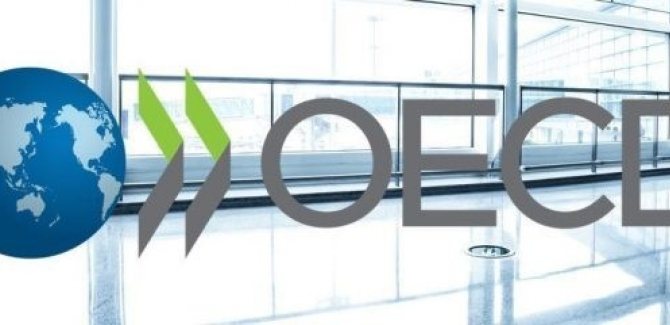
EL takes part in the OECD consultation on tax challenges of digitalisation
The increasing digitalisation of the economies across the globe prompted a major challenge for international taxation. Notably, how should taxing rights on income generated from cross-border activities in the digital age be allocated among countries? To address this issue, the OECD (Organisation for Economic Co-operation and Development) launched a public consultation in February this year in which it set out three proposals on how to address this issue and invited the public to comment on a number of policy issues and technical aspects of these proposals. Findings based on the comments received will feed into the further work of the OECD towards a consensus-based long-term solution in 2020. EL took part in this consultation highlighting major taxation-related issues in the gambling sector.
Possible solutions to the tax challenges of digitalisation
In March 2018, the European Commission proposed new rules to ensure that digital business activities are taxed in a fair way in the EU. Given the facts that: (1) some EU Member States have fundamentally different views of this matter; and (2) that tax measure must be adopted unanimously by all Member States; it seems that an agreement at the EU level might be difficult to achieve any time soon. This is why many eyes turn to the OECD now.
The OECD is an intergovernmental economic organisation and its mission is to promote policies that will improve the economic and social well-being. It does so mainly by providing a forum in which governments from around the world can work together to share experiences and seek solutions to common problems.
In response to the challenges posed by digitalisation, the OECD is currently examining three proposals:
- The ‘user participation’ proposal
Focuses on the participation of users as a critical component of value creation for certain highly digitalised businesses and would only apply to digitalised business models (e.g. social media platforms, search engines, etc.).
- The ‘marketing intangibles’ proposal
Would apply to a wider range of businesses that have marketing intangibles to include e.g. trademarks or customer lists and data.
- The ‘significant economic presence’ proposal
Would create a taxable presence in a jurisdiction based on a significant economic presence of a non-resident taxpayer through purposeful and sustained customer interaction via digital technology or other automated means.
In the public consultation in launched in February this year, the OECD invited public to comment on a number of policy issues and technical aspects of these proposals. Findings based on the comments received will feed into the further work of OECD towards a consensus-based long-term solution in 2020.
EL submission
EL welcomes the initiative seeking solutions at an international level.
In its submission EL supported an approach which would foster tax justice through an answer as broad and efficient as possible.
In the gambling sector, taxation is a crucial regulatory instrument that contributes to consumer protection, public order and anti-fraud goals. Conversely, EL highlighted the ‘significant economic presence’ proposal to have the potential to address a larger number of situations, including those digital activities that have a ‘brick and mortar’ equivalent – such as lotteries and gambling – and e-commerce in general. With a view of the activities of its members, changes in the tax rules according to the ‘user participation’ or the ‘marketing intangibles’ proposals are more likely to have a comparatively lesser impact on all online activities. This is particularly relevant given the fact that gambling sector is regulated at national level.
Finally, a reference to tax evasion issues which are of public concern has also been made.
***
OECD Tax Challenges Arising from Digitalisation – Interim Report 2018 is available here.
All the public comments received on the possible solutions to the tax challenges of digitalisation are available here.







